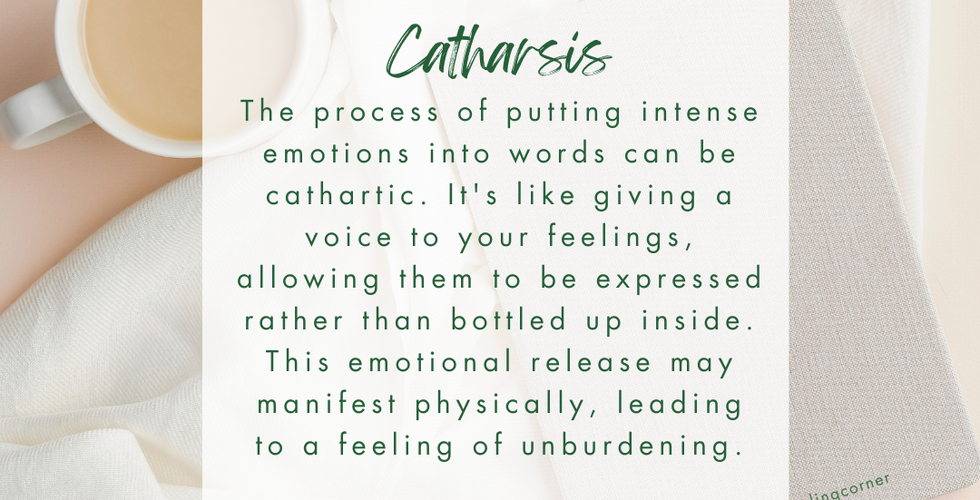Journaling: A Powerful Tool for Enhancing Your Mental Health and Well-Being
- michelleslaterlpc
- Jan 8, 2024
- 2 min read
Updated: Jan 27, 2024
Journaling can be a therapeutic outlet for releasing emotions stored in the body. Writing about experiences allows you to process and express feelings, providing a healthy way to release pent-up emotions and gain insights into your thoughts and behaviors.
The physical release associated with journaling is linked to the mind-body connection. Engaging in the act of writing can have tangible effects on the body, contributing to a sense of release in various ways:
Muscle Tension: When you're stressed or holding onto emotions, your body may tense up. The physical act of writing can serve as a way to release this tension. The repetitive motion of moving your hand across the page or keyboard can help relax muscles.
Breathing Patterns: Journaling often involves deep and focused breathing as you contemplate your thoughts and feelings. Conscious breathing is a powerful tool for relaxation, helping to regulate the autonomic nervous system and reduce physical stress.
Catharsis: The process of putting intense emotions into words can be cathartic. It's like giving a voice to your feelings, allowing them to be expressed rather than bottled up inside. This emotional release may manifest physically, leading to a feeling of unburdening.
Release of Neurotransmitters: Engaging in expressive writing has been associated with the release of neurotransmitters like serotonin and dopamine. These chemicals play a role in mood regulation, and their release can contribute to a sense of well-being and calm.
Stress Reduction: Chronic stress can have physical implications on the body. By using journaling as a stress management tool, you may indirectly alleviate physical symptoms associated with stress, such as headaches or tightness in the chest.
Improved Sleep: Journaling before bedtime can be particularly beneficial. The act of transferring thoughts from your mind to paper can help clear your mental space, potentially improving sleep quality and reducing physical manifestations of stress.
Physical release through journaling is interconnected with both the act of writing itself and the emotional processing that occurs during this reflective practice. This approach can contribute to a more balanced and relaxed state, both mentally and physically.














Commentaires